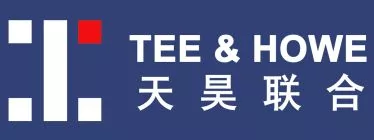On 1 December 2023, the CNIPA provided the above draft at the following link, with deadline to comment being on 31 December 2023:
https://www.cnipa.gov.cn/art/2023/12/2/art_75_188856.html
Before that, some further news in China as below:
1) It seems that CNIPA is applying geo-block on its access, as I could not access the above in Tokyo (I am traveling) until I used a VPN to Hong Kong.
2) 123 individuals/companies have been put in the list of severe IP infringements (https://mp.weixin.qq.com/s/fkDtcGKFE29wYhkx0rYQKQ)
Let's get back to the draft. The original Chinese documents are available at the CNIPA link, and I have their their respective machine English translations. The original machine translations said "Standard provisions on evidence......", but I believe the provisions are more about defining the standards on (handling) evidence.
According to the explanation, this draft was first started in July 2022, and finished in September 2023(so why not throw this draft out earlier for comments, and instead gives us only less than one month effectively?). Many of the principles have being practiced, and it is a good thing to put them together so that at least trademark owners could have clearer guidance. Some points to note, in my view, are as below:
- The following prevail
- Originals (even better for electronic evidence on storage media)
- Stamping (see for example Articles 5(1) and 6(1), 9(2) and (4)).
- Evidence verified by an independent 3rd party. "The person who extracted the evidence" in various articles in fact refer to a Chinese notary.
- Evidence already affirmed (and therefore verified) by other authorities, or in other legal decisions.
- Appraisal opinions could be submitted (Article 11), although not clear whether the qualified appraisal institutions could only be appointed by court. Anyway, various explanations should be included in order for such appraisal opinions to be considered, including the basis for the appraisal and the scientific and technical means used, explanation on the analysis process.
- Electronic and audio/visual evidence are allowed to be submitted. Transcripts are required (Article 7(3)).
- Article 13 seems to include wordings to allow foreign evidence apostille to be accepted, which is recently allowed in China (see various reports from others with excitement).
- It should be noted that the CNIPA (the enforcement) is
"responsible" for ensuring the authenticity (Article 28).
With the unbelievably huge volume, it could be expected that the
authority would push the burden to the party submitting the
evidence as much as possible, which is always the case in China.
This is why the above a) to c) prevails. In addition to these, the
below are also important factors to be considered (Article 30):
- Whether the evidence has been modified or technically processed (In reality, as long as the evidence has the possibility to be modified or altered, such would be out).
- Whether the person providing evidence or witness has an interest in the party (If the witness is your marketing director, good luck).
- Article 37 specified that the following shall not be used alone
as basis of the decision:
- Statements from the parties involved (So just shut up and do not bother to say anything. Let the facts tell your case).
- Statements from witnesses with relationship with the party submitting the statements.
- Article 38 provides a reasonable, in my view, explanation on how evidence would be accepted by the CNIPA on trademark enforcement cases.
- For electronic evidence, in addition to a) above, the following
should be noted (Article 40):
- Digital signatures and certificates could help.
- Whether the collection and/or extraction process is repeatable.
- Whether there are explanations for any amendments (But good luck with it).
- Whether the integrity of electronic data can be guaranteed. (Guaranteed by whom? One such guarantee I can think of is Wechat chat records could be guaranteed by Tencent that such could not be modified. Another is the electronic sales records in Taobao).
Overall, this draft provide clear guidance on how evidence would be accepted by the CNIPA (and other authorities like, which according to my understanding are working on similar principles). The difficult things to foreign litigants are the witness statements are of low value in China, and the evidence has to be verified by an independent third party, most of the time a Chinese notary.
As always, any thoughts and comments welcomed.
The content of this article is intended to provide a general guide to the subject matter. Specialist advice should be sought about your specific circumstances.

